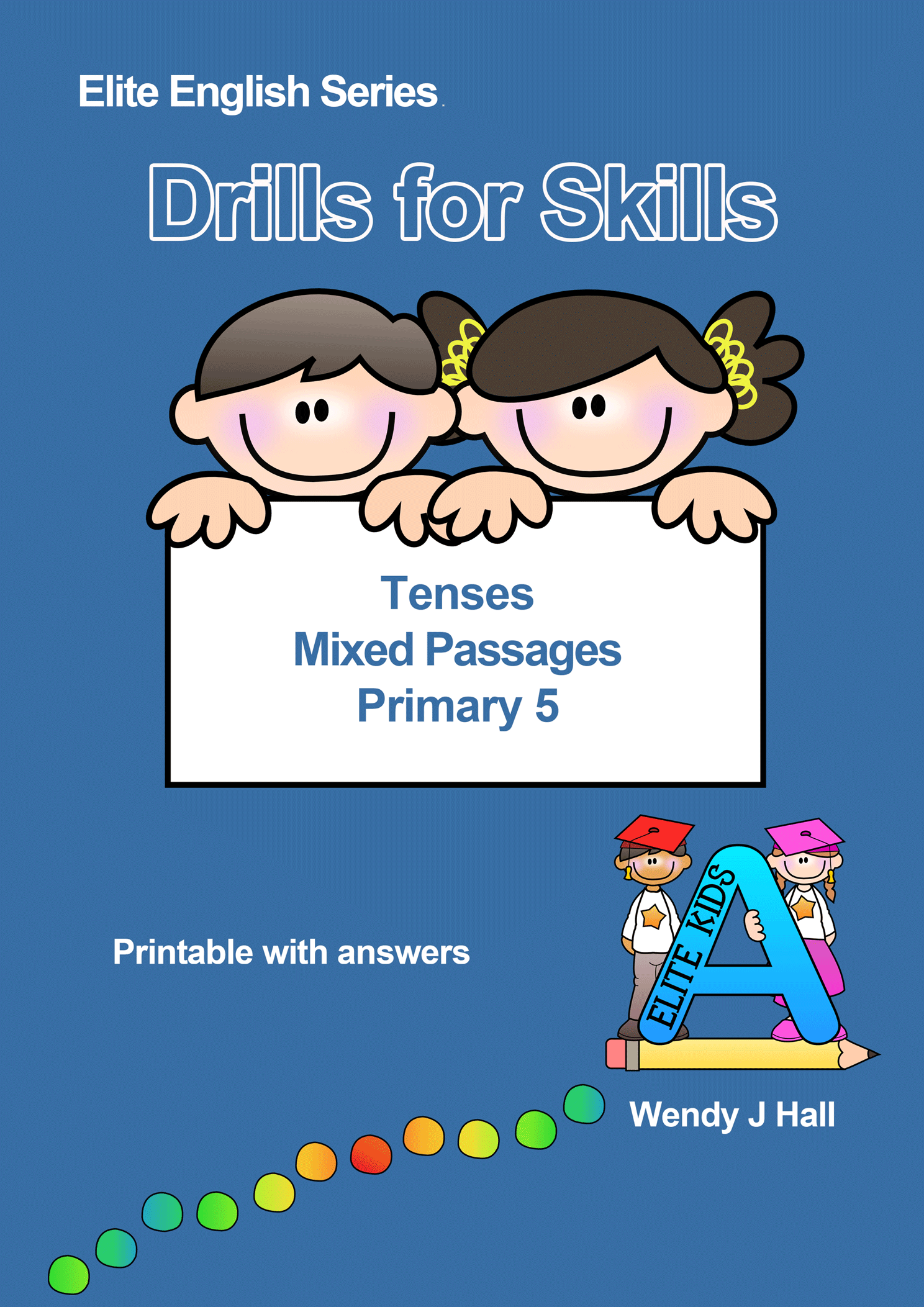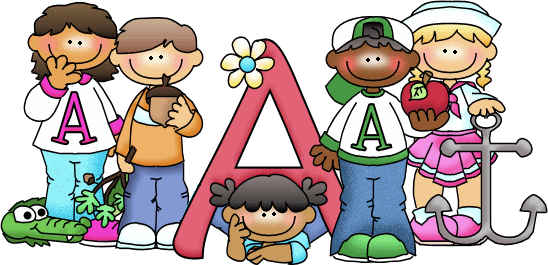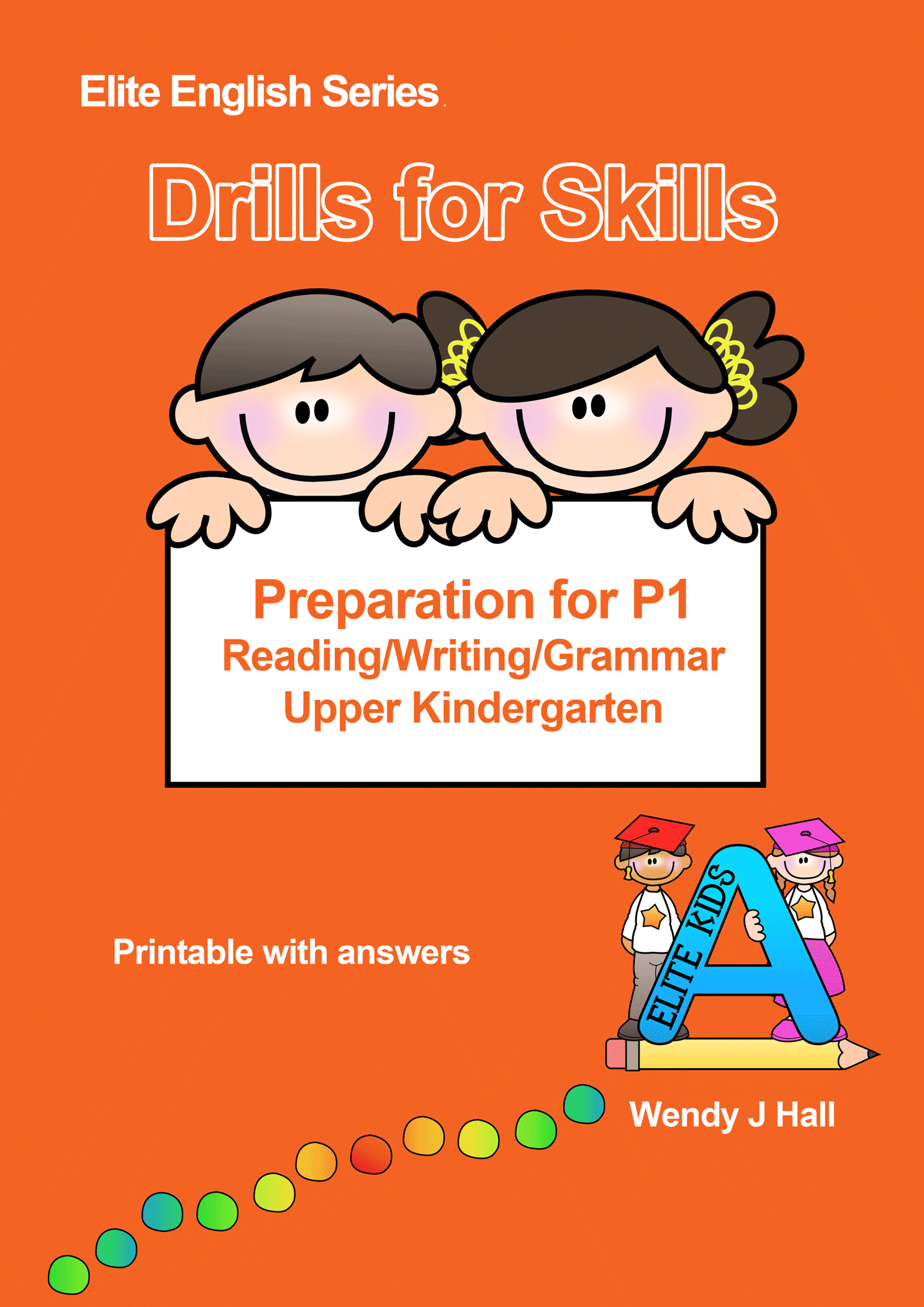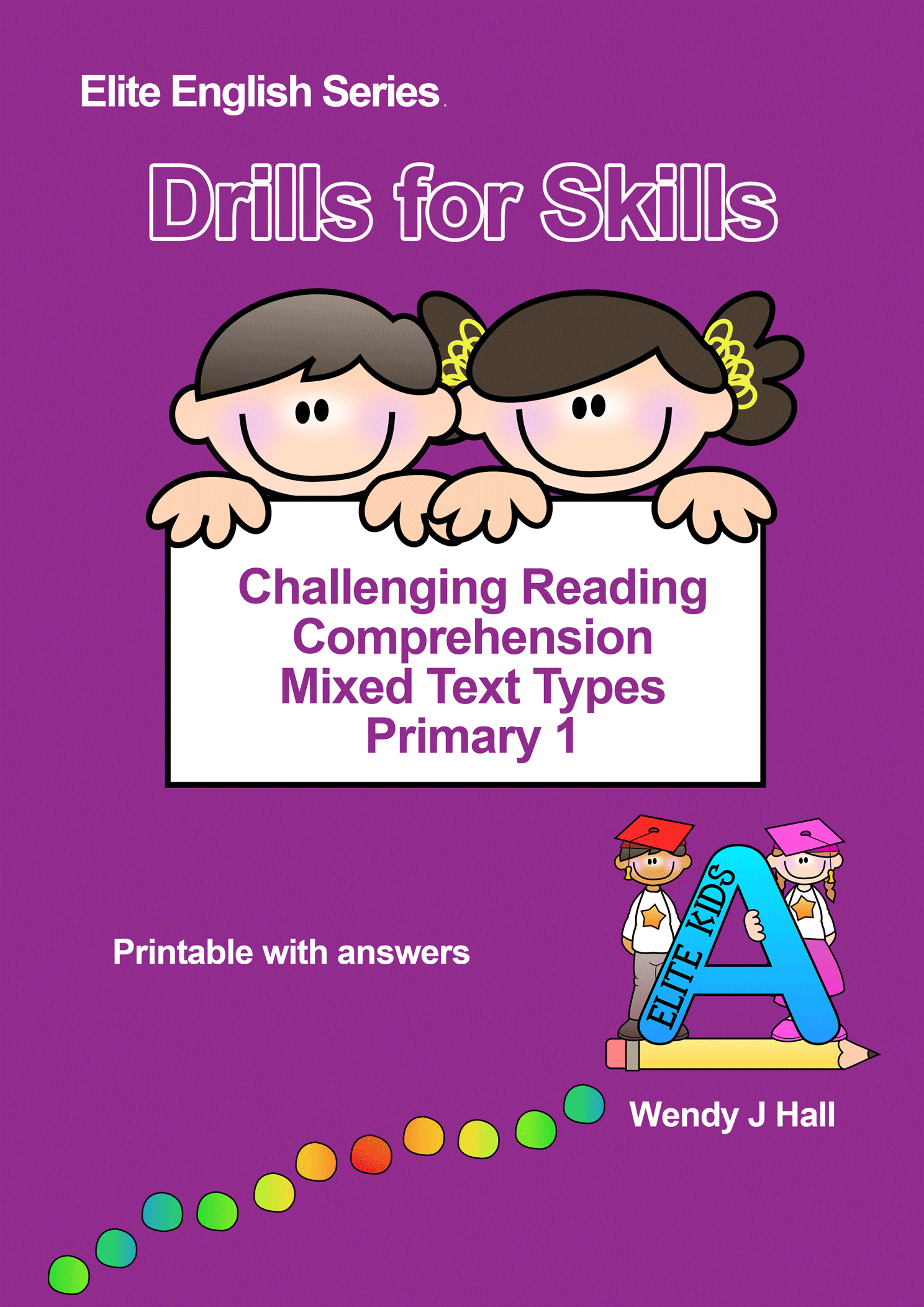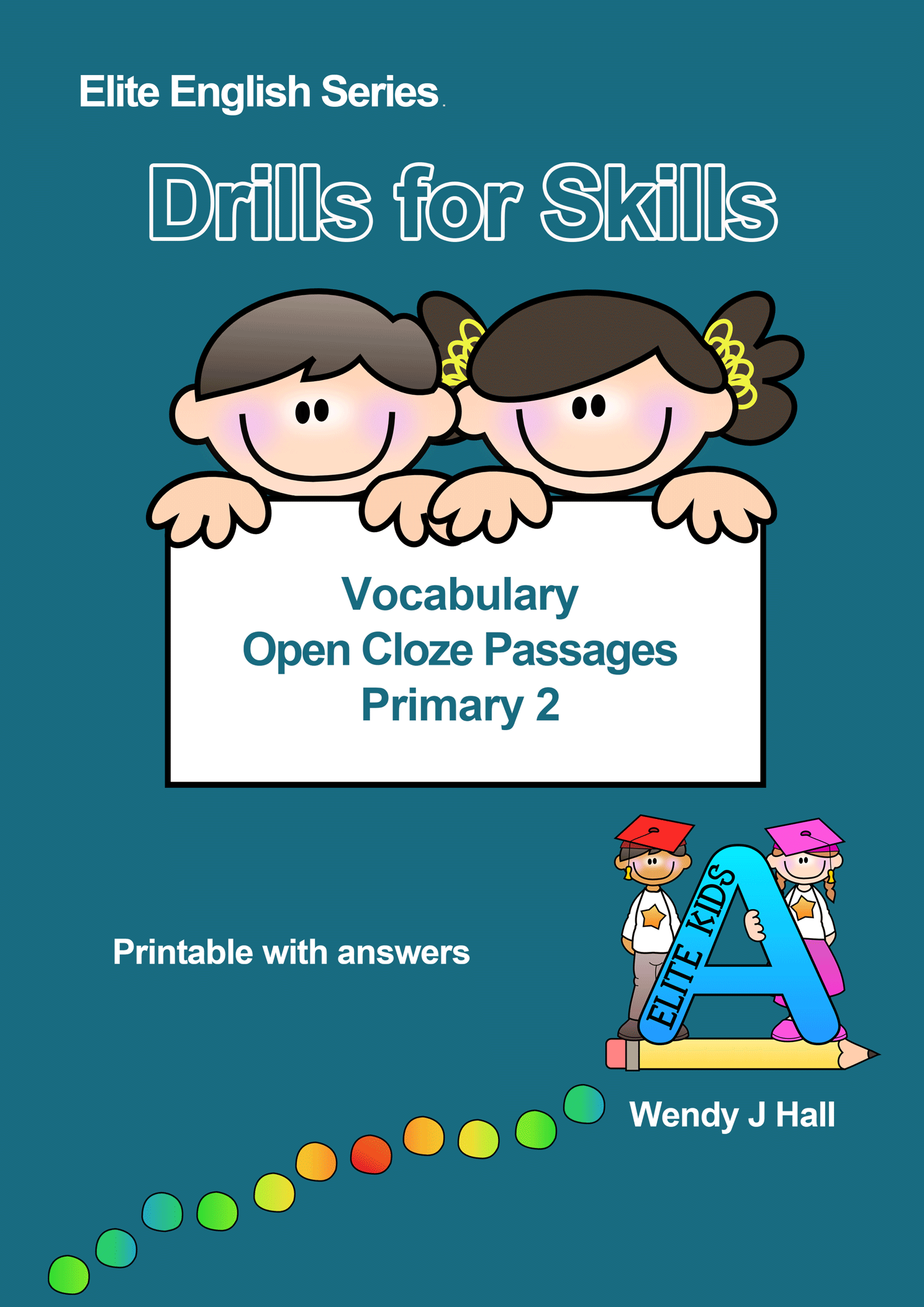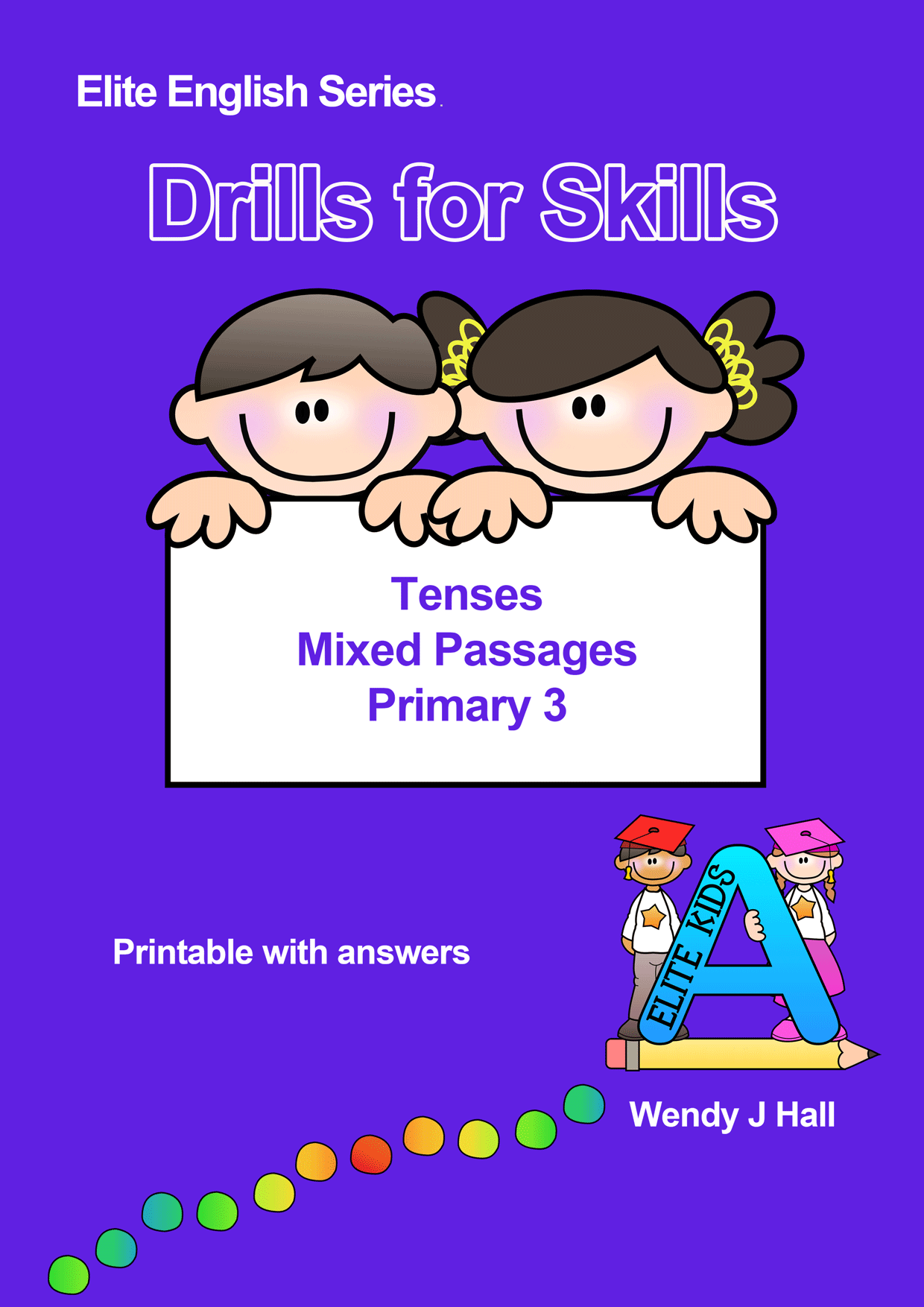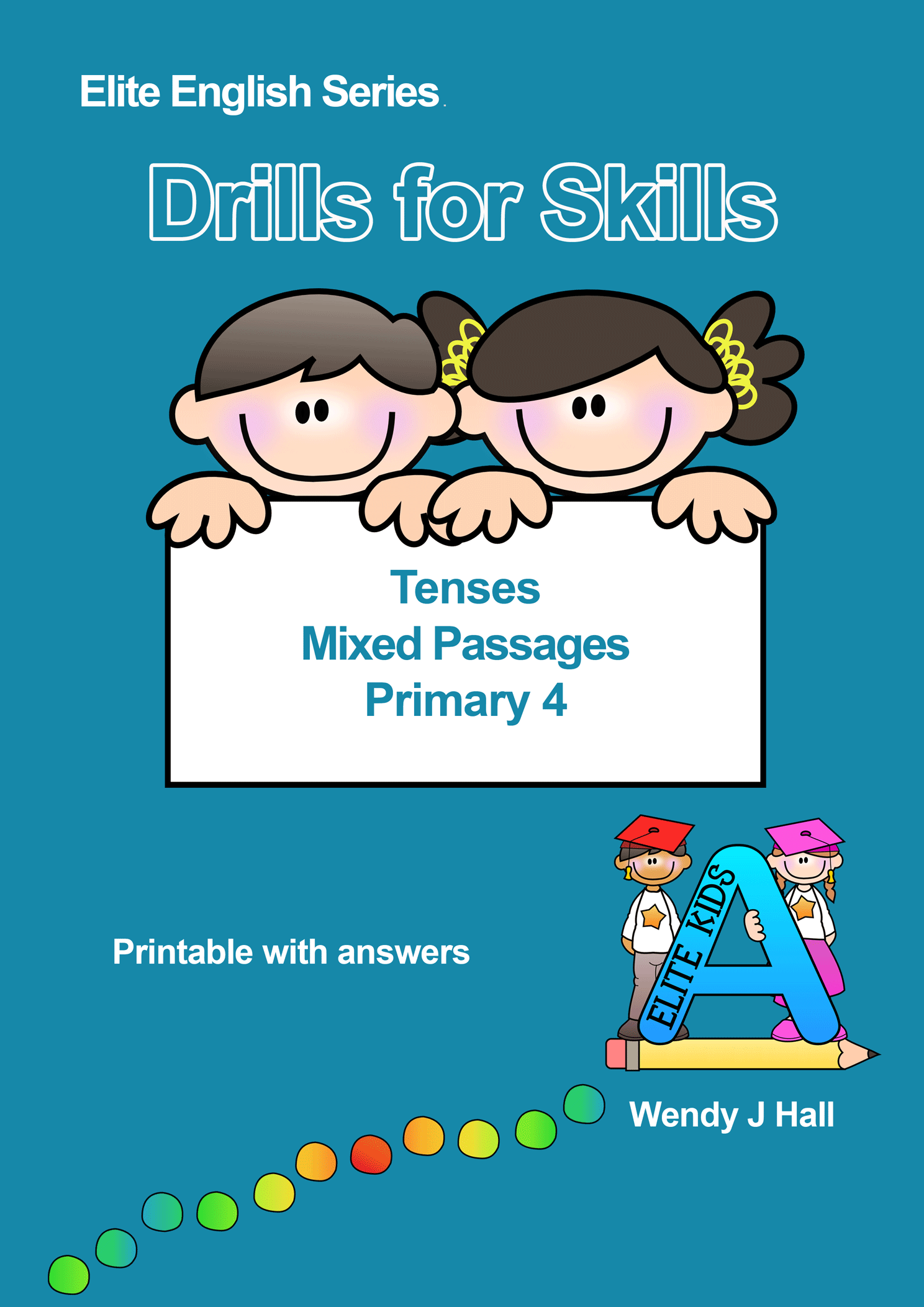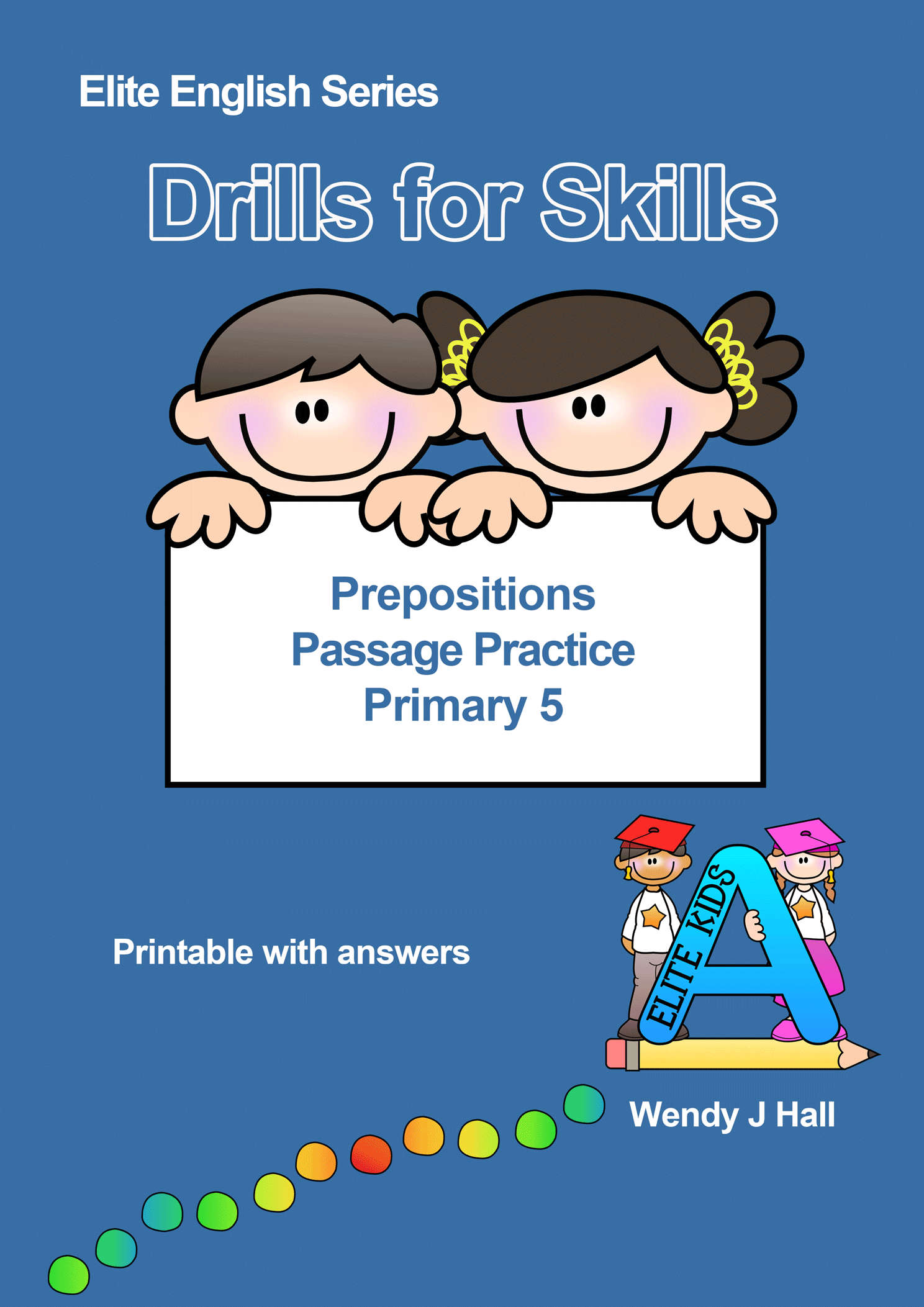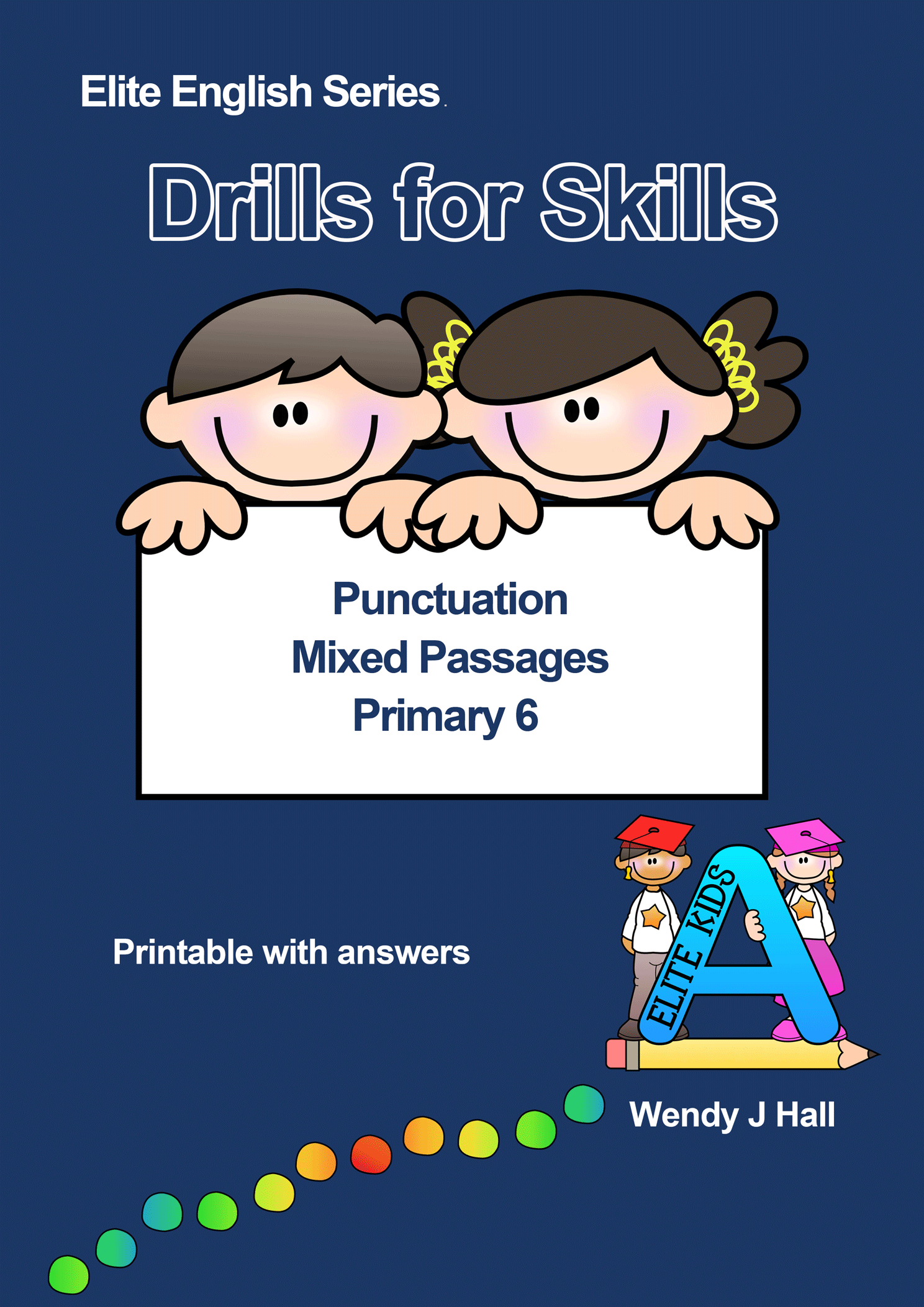English Verb Tenses: Tips and strategies for Hong Kong students
Free downloadable and printable tense chart (English verb tenses) - click here for PDF
Print and use for reference
Most ESL school exams contain tense exercises in the form of passages. These can be very difficult for Hong Kong students and are one of the areas where marks can be dropped easily.
It is easy to buy books and worksheets containing practice for individual tenses but passages containing multiple tenses are difficult to find. Click the link on the left for more information about my printable e-books.
Here are some proven strategies for tackling tense exercises which I have used over the years to help my students cope well with passages.
How to Tackle Tense Exercises
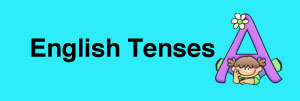
Always skim through the whole paragraph before attempting the blanks.
Each passage is like a mini comprehension exercise. Students need to connect with the meaning.
Look at the type of text. If it is a story or diary entry, it is likely to contain a lot of past tense.
If it is an article, it may contain a wide variety of tenses.
Trust your first feeling. If you start questioning yourself, you are more likely to make mistakes.
Look for clues in the sentences:
Time words: these indicate changes in tenses
Other verbs: these show the tense or relationships
Beware when there is direct speech. Tenses change a lot in direct speech.
Our three-step strategy for tackling tense exercises. For each blank:
Step 1:
Think about whether the answer is active or passive
To do this, you need to look at the subject. Can the subject 'do' the action or is something/someone doing the action to the subject.
Step 2:
Decide on the tense/verb form
To do this, you need to look at the time clues and the general meanings contained in the passage.
Here are uses of the common tenses:
- Present simple tense
- Present continuous tense
- Past simple tense
- Past continuous tense
- Future tense
- Future continuous tense
- Present perfect tense
- Past perfect tense
- Future perfect tense
Other verb forms include:
- gerunds (-ing forms)
- infinitives
Step 3:
Think about the agreement
Agreement just means using the correct form of the verb. For example for present simple, we need to add the 's' in the singular form.
Many students get step 1 and step 2 correct but then get the agreement wrong.
"I am soooooo touched by the thoughtfulness and recognition that you bestowed upon Anthony. I have to say your love and dedication for students is unfathomable, and I can see God's grace in how you steer your students through their challenges, pursuits and most importantly, difficult times. "
-Edna (Parent of 3 students)
"Education is not about filling a bucket, but lighting a fire! "
- William Yeats

